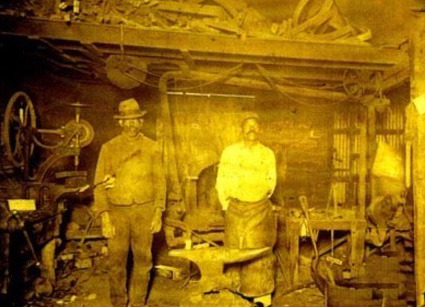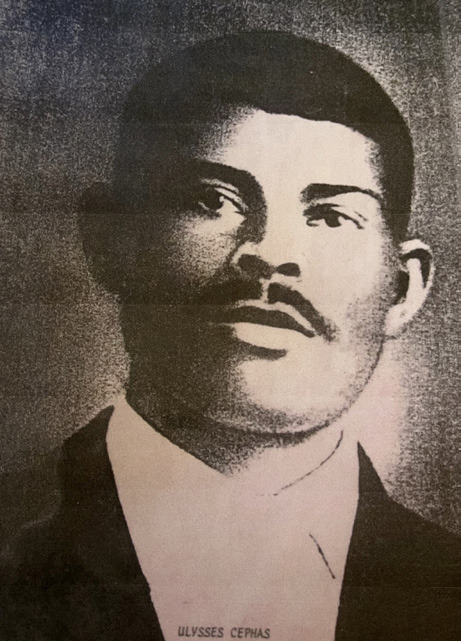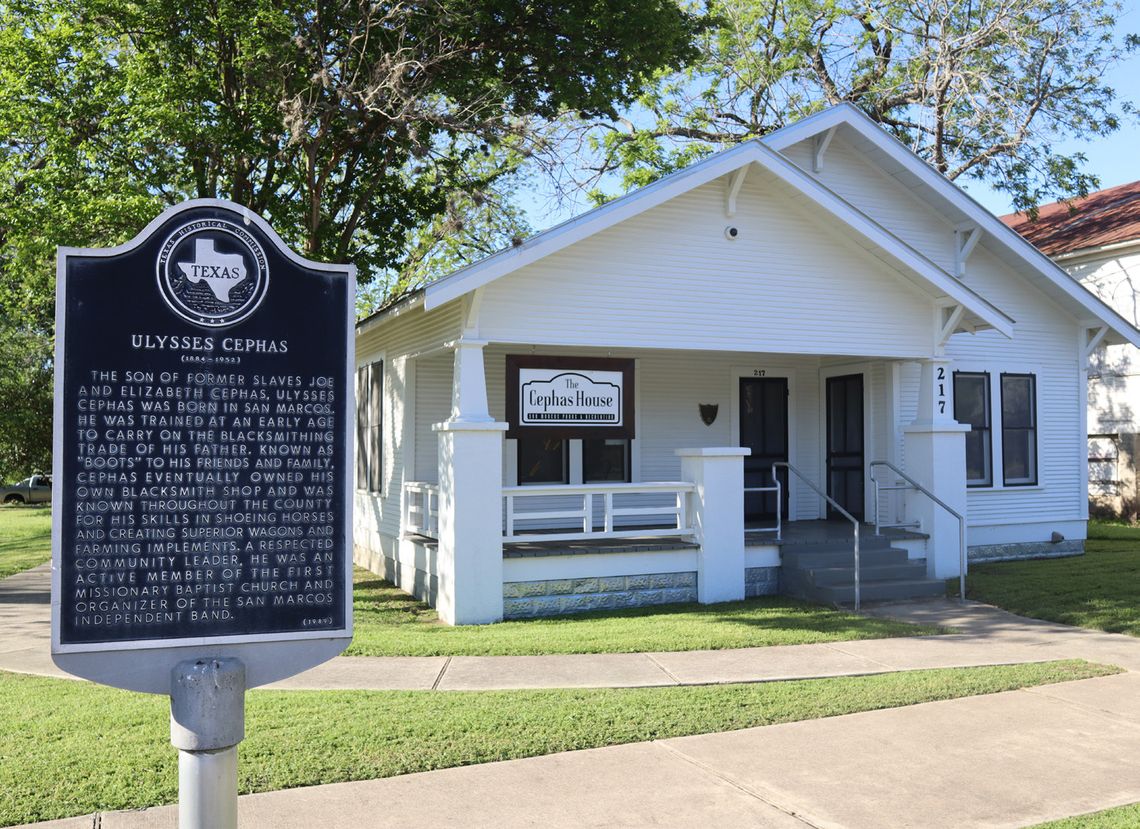Vintage Bungalows on Old Buggy Trails
Ulysses Cephas House
Perhaps the most fervent historians currently at work documenting old San Marcos are those determined to have the Dunbar area declared San Marcos’ third National Register Historic District. Spearheaded by tireless Michele Burleson, the group’s project is supported by stacks of documents, maps and oral histories, along with several significant restored buildings. It looks as if all the hard work will pay off later this year, as the coveted federal designation is close to being granted.
One of the anchors of this new district is a 1920’s era Craftsman bungalow, designed and hand-built by blacksmith Ulysses “Boots” Cephas for his family of six. It is included in this year’s Bungalows and Buggy Trails tour because in addition to the house being a classic bungalow (low-pitched roof, overhanging eaves, heavy square columns, and covered front porch), no one contributed more to the city’s equine transportation system than Cephas did.
“Boots” was born in San Marcos in 1895, the son of former slaves. He was from a family of healers that specialized in Indian Herbal healing, but he was the businessman of the family, owning his own successful business. There were other blacksmiths in town and even in the Dunbar area, but Cephas stood out for several reasons. He was known to be fluent in both English and Spanish. He was creative as well as skilled, earning widespread recognition for, among other things, fashioning a metal cage that allowed an 18-yearold college girl to be immobilized and sent safely home to Waco over bumpy Texas roads after breaking her pelvis in a train collision. In this regard, he carried on his family’s tradition of helping the sick. He was so talented that it was said if you wanted a horse to walk sideways, he could design shoes that would make that happen. He shod horses from all over Hays County, and because of that, among his many clients were members of the Ku Klux Klan. Thus, legend has it that he could recognize hooded members of the Klan just by looking at their animals’ hooves. This was an honest, reliable, and faithful family man. He and his wife Cora Willey were active in the First Baptist Church next door, where they were both noted singers and musicians. He even organized an active city band, The “San Marcos Independent Band”. When he died in 1952, as testimony to his career success, he left behind rent properties, a significant bank account, and only one debt which was a keg of nails.
The house he lived in till his death in 1952, after a period of neglect and deterioration, was purchased and beautifully restored by the City of San Marcos in 2012, and stands today as a testament to the dignity and devotion of the man who built it. It is used as a community meeting center, an adjunct to the Calaboose African-American Museum across the street. The museum, which will be open during the tour, features many of Cephas’ original blacksmithing tools. Guests are encouraged to cross the street and take in those absorbing displays, along with others depicting the rich culture of this area.
In describing their passion for saving the Dunbar district, Burleson says her friends and family couldn’t just stand by and watch as it continued to be dismantled piece by piece. The buildings which still anchor Dunbar—its churches, school, businesses, and various houses—deserve to be saved. “We can’t lose our history!” she exclaims as her sister Bobbie Shaw chimes in with supporting stories. “It just means too much. Take the school. I’m glad they redid it, but there are other parts to it that need to be redone also. And, they can’t just erase history by changing its name. It’s not Dunbar School—it’s the San Marcos Colored School, and it always will be. Just like the Calaboose isn’t a jail to us. For years we all knew it as“the Center,” a recreation hub for black teenagers to gather. We have us some work to do!”
Michele, Bobbie, and other Dunbar advocates will welcome Heritage Tour guests on May 4-5. In addition to stories, videos, and photo displays, the group looks forward to sharing traditional southern tea cakes, and the tiny sweet potato pies that they all remember making with their grandmothers.
Heritage Home Tour 2024 will occur May 4-5, from 11am-4pm. Advanced tickets are $25, available at the Chamber of Commerce, or online at www.heritagesanmarcos. org. Self-guided tour begins at the newly renovated Cock House Museum, 400 E. Hopkins, where tickets will be redeemed for wristband and tour materials. Breakfast pastries, gourmet coffee and an old-fashioned bake sale will start the tour. Tickets at the door $30, children and docents half-price.

Ulyses 'Boots' Cephas and Anthony Giles in Cephas' Blacksmith Shop at 228 S Guadalupe Street in San Marcos. Courtesy of the Cephas archives

Ulysses Cephas









